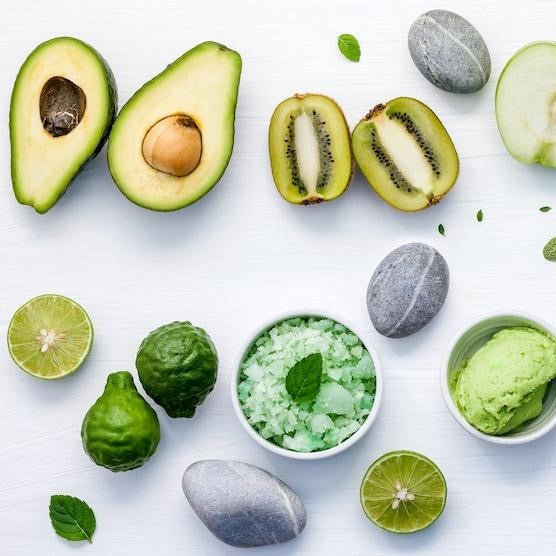We are all feeling a little on edge right now and in a time of unified uncertainty, if you are already suffering from regular bouts of anxiety, the added stress of the current state of the world can really take its toll.
It’s so important to nurture your wellbeing and mental health at the moment, so we’ve compiled a list of tips to help you de-stress and unplug.
And remember: if you’re not one to get overwhelmed by stress, make sure to check in with your friends and family who might need some extra reassurance.
1. KEEP MOVING
Thankfully, we live in a time where technology allows us to have some sense of continuity from home. If you’re missing the gym, don’t fret, the gym can come to you! There are plenty of online workouts and fitness apps you can use remotely, which don’t require equipment. And, be sure to utilise your hour outside to get the blood pumping. Fresh air will do your mind and body wonders right now. Aside from the obvious physical benefits of exercise, there is an overflowing list of surprising bonuses…to name a few:
- It’s proven to reduce stress, depression and anxiety
- It releases endorphins (the happy chemical) – and the more we can get at the moment the better!
- It boosts energy
- It helps keep you motivated, which is especially key for those working from home
- It keeps your health in check – we all know long sedentary periods (and hanging out of the fridge…) aren’t great for physical health
2. LIMIT EXCESSIVE EXPOSURE TO THE NEWS
COVID-19 is undeniably affecting us all and it’s hard to escape – but it’s critical that you do for your mental health. Yes, we all want to keep up to date, but it’s easy to get sucked into the media vortex (we’re guilty too!) only to come out of the hole hours later feeling like a ball of anxiety. Checking the news compulsively isn’t going to do your mental health any favours.
It’s also important not to buy into everything you read online. There is a lot of misinformation and mixed messages circulating on social media, TV and online right now. Stick to trusted news sources only like the government, NHS and WHO.
The World Health Organisation recommends only seeking necessary updates in order to take practical steps to protect yourself and those around you. Below are some additional tips to help limit overexposure to media.
- Allocate yourself a time limit and set a time of day to consume news media
- Delete social media apps
- Disable push notifications from news apps
- If you’re worried about missing crucial information, ask your friends or family to update you with any urgent developments
3. PRACTICE GRATITUDE
Isn’t hindsight a wonderful thing. Oh to go back to the days where tiny inconveniences would put you in a bad mood…a snappy email, somebody cutting you off, a slightly longer wait for your meal. While it might seem unfathomable right now, you might actually miss some things about your simpler life now when we return to normal.
When everything around us is doom and gloom, it’s easy to get stuck in a negative mindset. Consider keeping a gratitude journal over the lockdown period and recording things you’re grateful for right now. Is anyone else only truly appreciating the beauty of nature now we’re limited to one hour outside? Or, do you have a whole new outlook on what’s really important, like spending quality time with family?
Remember to check in with the things you enjoy doing, take note of the things you like looking at and the tiny parts of living that bring you joy.
4. WORK-LIFE BALANCE
For those now working from home you may have discovered the separation between work and home is a lot harder to maintain now your office is in view. All. The. Time.
Don’t bury yourself in work in order to avoid the chaos. The reality is we have weeks or months ahead of the coronavirus pandemic so it’s crucial not to burnout and prioritise downtime. Try to clock off when you usually would and not work too late into the night.
Oh, and why not embrace the perks of working from home? Start earlier, finish earlier! Have a longer lunch! Appreciate the sleep-in when you’d usually be commuting!
5. PRIORITISE SLEEP
Getting enough sleep gives you a greater ability to cope with stress. Sleep brings hormones into balance, calms the nervous system, rests the body and mind and gives you energy to cope with life.
6. STAY CONNECTED
Lockdown doesn’t have to mean no FaceTime. Thankfully, technology today means we can easily stay connected to friends and family. Utilise social media for its original purpose – to connect. Whether its funny memes, MAFs debriefs or just checking in on each other, keep those who put a smile on your dial close.
7. EAT WELL
Anyone else find working from home not great for the waistline? When routine is thrown out of whack or you’re feeling emotional, it’s tempting to snack when you normally wouldn’t and indulge in comfort food. Health food is good for the soul. Eat more whole foods and fewer processed foods, drink adequate water, reduce caffeine and eat regular healthy snacks to keep your sugar levels balanced and your energy levels stable.
8. VITAMINS AND MINERALS
B vitamins aid healthy brain and nervous system function but they get depleted with stress. Consider taking a B-complex supplement daily to manage anxiety. Magnesium is also known to help support a healthy stress response. It’s also wise to consider an immunity support supplement at the moment like Lifestream Ultra Immunity Defence.




